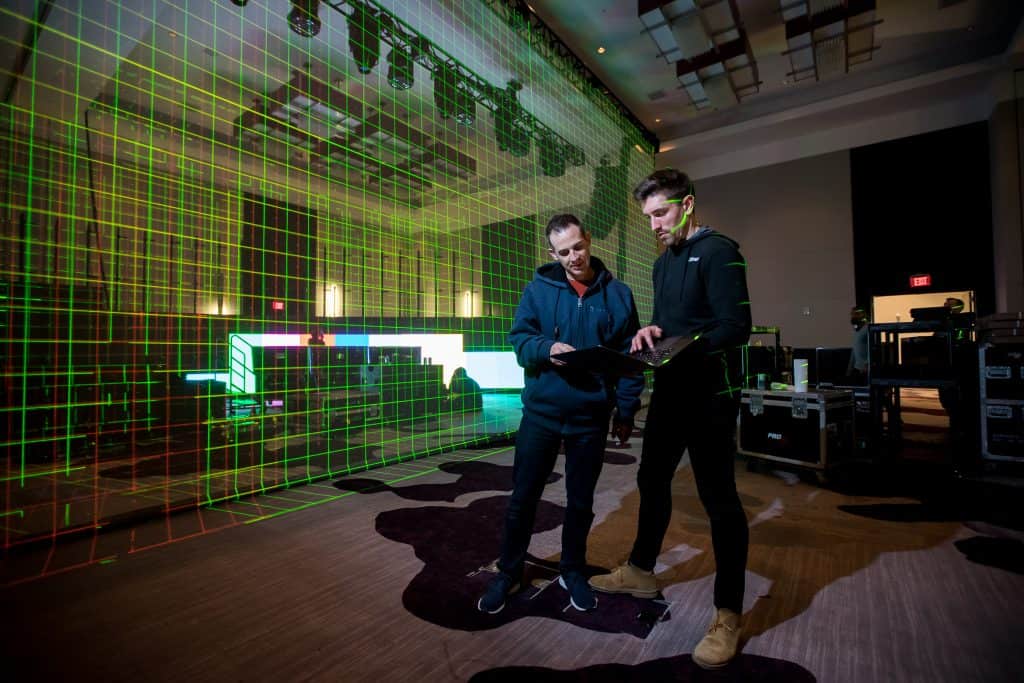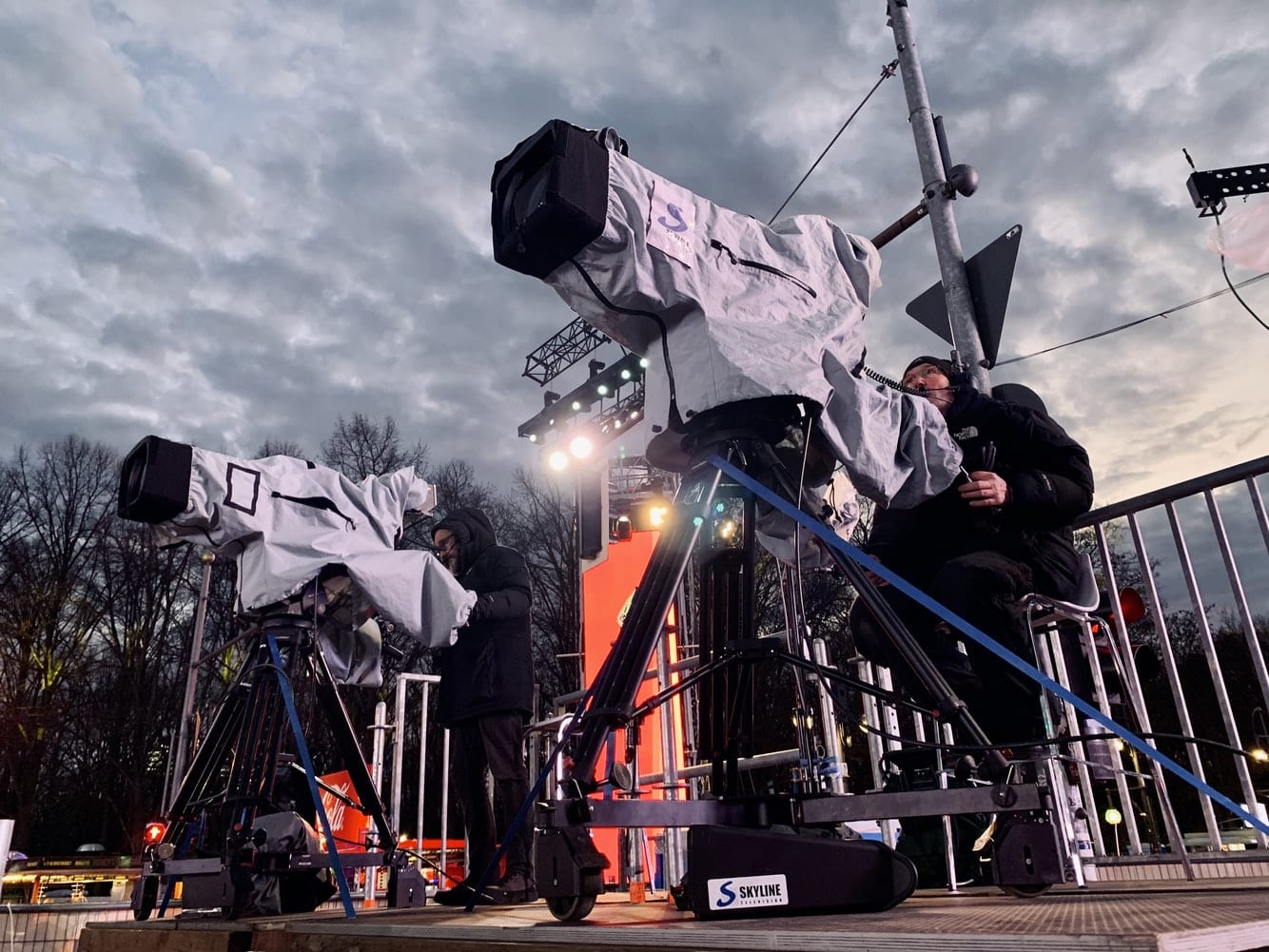Understanding Event Production: Why It Is Very Important for Effective Events
Event production plays an important role fit effective gatherings. It involves careful planning, control, and execution to ensure every detail lines up with the event's vision. This procedure not only improves participant experiences yet likewise facilitates significant links among participants. Recognizing the intricacies of event production can considerably affect the general result. What are the crucial elements that contribute to an effective event, and just how can they be effectively handled?
The Role of Event Production in Producing Remarkable Experiences
Although many elements add to the success of an event, event production plays a pivotal function in crafting memorable experiences. This complex procedure incorporates different aspects, including preparation, logistics, and execution. Efficient event production guarantees that every detail aligns with the total vision, creating a smooth circulation that captivates guests. By collaborating timelines, managing resources, and supervising technical elements, event producers establish a foundation for impactful experiences.Moreover, they curate environments that resonate with the target audience, enhancing involvement and psychological connection. From choosing suitable venues to integrating innovative technology, the options made during production considerably influence how attendees view and bear in mind the event. By prioritizing top quality and focus to information, event production changes common events right into amazing moments, leaving long lasting impressions. Inevitably, the proficient orchestration of these parts defines the essence of an occasion, showcasing the value of expert event production in achieving remarkable end results.
Secret Components of Effective Event Production
Efficient event production depends upon a number of key parts that ensure success. Preparation and sychronisation develop a solid structure, while technological configuration needs deal with logistical demands. Additionally, carrying out target market engagement approaches enhances the general experience, making the event remarkable.
Planning and Sychronisation
Preparation and coordination work as the foundation of successful event production, making sure that every information straightens perfectly to develop a memorable experience. Efficient preparation entails establishing a clear vision and goals, while coordination involves the careful company of logistics, timetables, and sources. A distinct timeline is necessary, guiding all stakeholders with essential landmarks and jobs. Communication plays a crucial role, fostering cooperation among staff member, vendors, and location team. Normal meetings and updates assist to address obstacles promptly, ensuring that everyone remains aligned with the event goals. Eventually, an organized strategy to preparation and control not only enhances efficiency but also greatly contributes to the overall success and enjoyment of the event for attendees and coordinators alike.
Technical Arrangement Requirements
An effective event depends greatly on its technological setup needs, which include necessary parts such as audio-visual equipment, lighting, hosting, and connectivity. Audio-visual equipment includes microphones, speakers, and projectors, making sure that presentations and performances are supplied plainly. Appropriate illumination enhances the atmosphere and highlights vital areas, while presenting offers the required system for audio speakers and performers. Connection, consisting of Wi-Fi and electrical gain access to, is important for seamless interaction and innovation integration. Each part must be diligently intended and executed, tailored to the event's particular demands. Insufficient technological setups can result in interruptions, adversely impacting the general experience for attendees, emphasizing the significance of comprehensive prep work and attention to detail in event production.
Audience Interaction Strategies

The Relevance of Planning and Control
Planning and sychronisation are critical to the success of any kind of event production. Effective timeline administration, source allowance approaches, and team interaction dynamics play necessary roles in making sure that all elements come together perfectly. Without an organized method to these facets, events risk dealing with hold-ups, budget overruns, and miscommunication amongst employee.
Efficient Timeline Monitoring


While effective event production typically depends upon creative thinking and execution, effective timeline administration stays an essential component that can not be neglected. A well-structured timeline functions as the backbone of any type of event, making certain that each stage is performed in a timely manner. It permits the coordination of different tasks, from location setup to guest arrivals, while preventing prospective traffic jams. By clearly laying out deadlines and duties, event planners can preserve emphasis and adjust to unforeseen challenges. In addition, a carefully crafted timeline cultivates communication amongst staff member, promoting liability and collaboration. Inevitably, effective timeline administration not just improves operational effectiveness however also contributes greatly to the general success and smooth implementation of the event, leaving attendees with an unforgettable experience.
Source Allocation Approaches
Efficient resource appropriation methods are critical for the effective implementation of any type of event. Appropriate preparation allows event organizers to determine and disperse sources, such as funds, employees, and products, in a fashion that makes best use of efficiency. By evaluating the particular requirements of each element of the event, coordinators can focus on jobs and designate sources as necessary. Control amongst various divisions ensures that all elements, from accommodating audiovisual needs, are properly supported. This strategic method not only minimizes waste but additionally boosts the total experience for participants. In addition, expecting prospective challenges and having contingency strategies in area permits smoother procedures. Eventually, efficient resource allocation adds significantly to accomplishing event goals and guaranteeing a remarkable celebration.
Team Communication Characteristics
Exactly how can seamless interaction amongst team participants change the event production process? Effective interaction is crucial for coordinating jobs, sharing updates, and attending to obstacles in real-time. When employee involve in open dialogue, they can rapidly recognize possible issues and create services collaboratively, minimizing hold-ups and misunderstandings. This vibrant fosters a cohesive environment where everybody recognizes their functions and responsibilities, bring about a more integrated effort. In addition, routine check-ins and responses loops boost responsibility and warranty positioning with the event's purposes. By prioritizing interaction strategies, groups can simplify process, strengthen morale, and inevitably elevate the general top quality of the event. Successful events rest on the capability to connect effectively, making it an important element of event production.
Enhancing Participant Interaction Via Creative Style
Innovative layout plays an essential function in enhancing attendee interaction at events, as it cultivates an immersive environment that captivates participants' attention. By integrating innovative visuals, interactive aspects, and thematic style, event coordinators can create unforgettable experiences that reverberate with attendees. Thoughtful layout designs promote movement and expedition, urging guests to connect with displays and each other.Incorporating innovation, such as augmented truth or live ballot, further enhances the experience, allowing for real-time comments and interaction. Furthermore, sensory components like lights, audio, and aroma can stimulate feelings and develop an extra interesting atmosphere.The use of narration via layout look here aids convey the event's purpose and message, making it much more relatable for attendees. Ultimately, creative design not just enhances engagement but also grows links among participants, leaving a long lasting impression that extends past the event itself. This critical strategy to layout is necessary for successful gatherings.
Managing Logistics for a Smooth Implementation
While the enjoyment of an event can draw participants in, taking care of logistics is crucial to protect a seamless implementation. This includes meticulously coordinating official statement numerous components, from location option and design to food catering and transportation. Effective logistics monitoring ensures that all components straighten, permitting a smooth flow from enrollment to the final thought of the event.Additionally, a clear communication strategy among all stakeholders is important. This includes team, vendors, and volunteers, that need to be informed of their duties and obligations. Anticipating possible difficulties, such as tools failure or unanticipated weather condition problems, can additionally enhance the event's success.Creating a thorough timeline helps maintain the team on the right track and enables timely changes. Eventually, well-managed logistics not just help with a delightful experience for attendees yet also show the professionalism and dependability of the coordinators, adding to the general success of the celebration.

The Influence of Innovation on Event Production
What function does technology play in forming contemporary event production? Technology has come to be a foundation of efficient event production, boosting both preparing and execution procedures. From sophisticated registration systems to interactive apps, modern technology streamlines attendee monitoring and enhances involvement. Digital event systems enable coordinators to get to broader target markets, breaking geographical obstacles and assisting in hybrid celebrations that combine in-person and on the internet experiences.Additionally, audiovisual innovations, such as high-definition screens and audio systems, raise the high quality of presentations and efficiencies, ensuring a remarkable experience for guests - event production charlotte. Social network assimilation allows real-time responses and interaction, cultivating community engagement previously, during, and after the event. Data analytics devices assist organizers in checking individual actions and choices, enabling tailored experiences that reverberate with varied target markets. Overall, the combination of modern technology in event production not only improves operational effectiveness yet additionally enhances participant experiences, inevitably adding to the success of the event
Reviewing Success: Determining the Results of Your Event
Success in event production pivots on reliable analysis, which involves measuring a selection of end results to evaluate the general effect of an event. To attain this, organizers can employ both qualitative and quantitative metrics. Quantitative steps may include attendance numbers, ticket sales, and revenue generated, while qualitative assessments could include attendee fulfillment studies and comments forms.Additionally, examining social networks involvement and media insurance coverage can supply understandings into the event's reach and brand influence. Contrasting these metrics versus predefined objectives assists identify if the goals were met.Furthermore, post-event debriefs with the planning group can discover lessons found out and areas for renovation. By systematically examining these results, event producers can enhance future gatherings, making certain continual growth and success. Ultimately, an extensive assessment not only highlights accomplishments however also educates tactical decisions for succeeding events, cultivating a culture of quality in event production.
Frequently Asked Concerns
What Credentials Should an Event Manufacturer Have?
Event manufacturers must have solid organizational abilities, creative thinking, and efficient communication capabilities. A history in project management, budgeting, and negotiation is important. Relevant qualifications and experience in diverse event kinds even more enhance their certifications.
How Can I Minimize Event Production Costs Successfully?
To efficiently reduce event production prices, one can streamline supplier selection, work out agreements, utilize internal resources, prioritize crucial elements, apply technology for effectiveness, and discover sponsorship chances to counter expenses without jeopardizing top quality.
What Are the Usual Challenges in Event Production?
Common difficulties in event production consist of spending plan constraints, logistical coordination, vendor management, time Get the facts limitations, participant engagement, technical problems, and unforeseen conditions - event production charlotte. Each factor can greatly influence the general success and smooth implementation of the event
How Do I Select the Right Venue for My Event?
Choosing the right venue involves thinking about variables such as area, ability, services, and spending plan. Furthermore, assessing accessibility and setting assures the selected room aligns with the event's objectives and boosts the general participant experience.
What Is the Regular Timeline for Preparation an Occasion?
The normal timeline for preparing an event varies, however normally includes stages such as concept development, venue option, supplier control, promo, and final preparations, frequently spanning several months to assure an effective implementation.